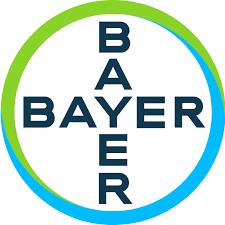By: Gina Sanchez
On September 9th, iJOBS and the Erdos Institute hosted Dr. Norell Hadzimichalis who gave a talk entitled “Non-linear career trajectories for Ph.D.s.” During her talk, Dr. Hadzimichalis essentially walked us through her story of how she began at UMDNJ as a Ph.D. candidate and ended up as the Global R&D Category Director for Pain and Cardiology at Bayer. She kept the discussions informal and greatly welcomed questions because she wished that she had taken advantage of these opportunities as a Ph.D. candidate and post-doctoral fellow.
The Path of Dr. Hadzimichalis:
Dr. Hadzimichalis’ story involved a lot of “happenstances” as she put it, making connections when given the opportunity, as well as being honest with herself and her mentors. For example, she earned her Ph.D. in molecular biology and neuroscience in part because she loved science, but also because she was still looking to gain life experiences that would help her figure out where she wanted to end up in the science field. After much reflection and being honest with herself during her Ph.D., she realized she needed a change: she did not want to stay at the bench forever. This was at the time where it was only beginning to become acceptable to not stay in academia after a Ph.D. Luckily for her, she formed a connection with her eventual post-doctoral mentor just by reaching out. Dr. Hadzimichalis was honest about her desire to leave the bench, and the mentor told her “Well, that’s okay!” and helped her navigate the process of finding the best career path for her. Because Dr. Hadzimichalis was up-front, she was able to do formal and informal internships during her post-doc. One such formal opportunity was in the Rutgers Patent Office. By doing this, she was able to learn that she did not love tedious work with excessive reading. She also formed informal connections that allowed her to try medical writing, science blogging, as well as editing just by reaching out to companies and asking if they would like help with these roles. She emphasized that she would have preferred taking these types of opportunities earlier during her Ph.D. rather than during her post-doc. In this way, there would have been more time to figure out what career she wanted and decide whether or not to do a post-doc in the first place. Additionally, it is much better to take these opportunities when you have a supportive mentor. By forming both formal and informal connections, Dr. Hadzimichalis was able to learn more about what she did and did not want in a career.

Source: https://seekingalpha.com/article/4323440-reckitt-benckiser-heading-towards-pure-play-health-in-2020
After several years working on the business side of the Rutgers Patent Office, Dr. Hadzimichalis learned that she loved the creative and marketing opportunities, leading her to her career with Reckitt. She did not have industry experience but wanted the interview, so she searched on LinkedIn for people with key words from the career posting and asked them if they could chat. This networking allowed her to have a conversation with the hiring manager and get the job! As a technology scout, she looked out for various medications and companies that Reckitt could acquire or license. She advised that in any career path, having a Human Resources representative on your side is a powerful tool. The more you volunteer to help, the more your name pops into their mind when looking for people to fill various opportunities. This made it possible for her to participate in an exclusive executive leadership program where she could travel and receive one-on-one coaching. The program ultimately skyrocketed her career. She then became the Head of Outside Innovation with Reckitt, where she was overseeing technology scouting for this global power brand. However, she eventually realized that she had plateaued with Reckitt unless she was willing to pick up her family and move.

Source: https://seekingalpha.com/article/4323440-reckitt-benckiser-heading-towards-pure-play-health-in-2020
By “happenstance”, the Global R&D director at Bayer had originally built up Dr. Hadzimichalis’ department at Reckitt. Knowing what had been accomplished by Reckitt, he wanted to build something similar at Bayer. The director then reached out to Dr. Hadzimichalis, thus beginning her career at Bayer! She began as the Director for External Innovation, where she connected global pipelines to external partners of Bayer as well as enjoyed the business side of things. To progress in consumer goods, Dr. Hadzimichalis knew she would need an accountable role within a specific category. She took on tasks that made her personally accountable for these products, forcing her to maintain focus. As of this past February, she escalated to become the Global R&D Category Director in Pain and Cardiology. In this role, she gets to see what the Bayer teams are developing and launching into products every day. She participates in meetings that involve a multitude of groups (marketing, R&D, regulatory, formulators, supply, packaging, etc.) with the goal of answering the questions surrounding product logistics. She emphasized that you must remember “consumers have a choice” in what pharmaceuticals they buy, so “how it looks and feels matters.” In this role at Bayer, Dr. Hadzimichalis let her work speak for her to escalate through the ranks to a position that she truly loves. Once more, by being honest with herself, Dr. Hadzimichalis was able to identify what she needed to do her best and excel in her role.
Life Lessons:
At the end of the session, Dr. Hadzimichalis let attendees know some of the valuable things learned during her Ph.D. (but not tied to her dissertation) that have helped her get to where she is today. A major point was that it is okay to make decisions based on your personal life. Everyone has their own circumstances outside of work. A phrase that she used was “leave loudly!” By this, she means that if you are leaving early, say “I’m leaving at 4 to go pick up my kids” to help normalize having a life aside from work. However, it is still important to not let your work suffer, so if she does leave early, she may log in later or adjust her hours the next day to compensate. By doing this, she still gets everything done and meets her deadlines all while nurturing her personal life. Another point that she made was that we must not focus on our weaknesses, but instead how to maximize our strengths. One final point that I think we as scientists all could work on is that if/when we eventually leave the bench in our careers, we must learn how to “speak in stories, not in facts.” People will listen better in a conference or in an interview if you can make your topic more relatable as opposed to just a regurgitation of facts. These are all important things for us to consider as we wrap up our Ph.D.s.
Dr. Hadzimichalis’ story is one that can be helpful for all of us. It is one that emphasizes forming informal connections to network as well as maintaining a balance with one’s personal life. She took it upon herself to obtain several internship opportunities during her post-doctoral training, reached out to people with job descriptions similar to her interests to obtain a new career without direct experience, and made connections with HR that helped her to get accepted into a leadership program that skyrocketed her career. Dr. Hadzimichalis also allowed herself to make decisions about her career based on what was possible with her personal life and career. This included choosing to leave the Rutgers Patent Office, as well as “leaving loudly” to help normalize having a personal life.
Junior Editor: Juliana Corrêa-Velloso
Senior Editors: Brianna Alexander and Natalie Losada